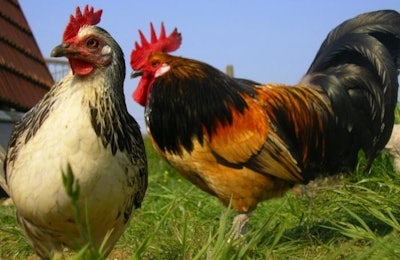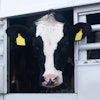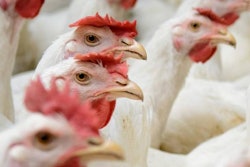
Virulent Newcastle disease cases continue in California, and have extended into backyard poultry in a third California County.
The most recent case, confirmed on June 30, was detected in a flock of backyard exhibition chickens in Riverside County, reported the U.S. Department of Agriculture’s Animal and Plant Health Inspection Service (APHIS). The first U.S. case in 2018 was confirmed on May 17 in Los Angeles County, but that was the only confirmed case of the virus in that county.
All other cases have been reported in San Bernardino County. There have been 34 confirmed cases in San Bernardino County, with the first one reported on May 24, and the newest ones on June 30.
None of the cases have affected commercial poultry flocks, but rather all have been in backyard exhibition birds. In one case, the virus was found in a mixed species flock of exhibition birds, but all other cases – in all three counties – have been in backyard exhibition chickens, APHIS reported.
According to a press release from APHIS, 2003 was the last time virulent Newcastle disease, previously referred to as exotic Newcastle disease, was confirmed in a commercial poultry flock in the United States.
Recommended precautions
In very rare instances, people working directly with sick birds can become infected, but no human cases of Newcastle disease have ever occurred from eating poultry products, according to APHIS. Symptoms are usually very mild and limited to conjunctivitis. Infection is easily prevented by using standard personal protective equipment.
It is essential that all bird owners follow good biosecurity practices to help protect their birds from infectious diseases, the agency emphasized. These include simple steps like washing hands and scrubbing boots before and after entering a poultry area; cleaning and disinfecting tires and equipment before moving them off the property; and isolating any birds returning from shows for 30 days before placing them with the rest of the flock.
In addition to practicing good biosecurity, all bird owners should report sick birds or unusual bird deaths to state or federal officials, either through their state veterinarian or USDA’s toll-free number at +1.866.536.7593. Additional information on biosecurity for backyard flocks can be found on the Biosecurity for Birds webpage.


















